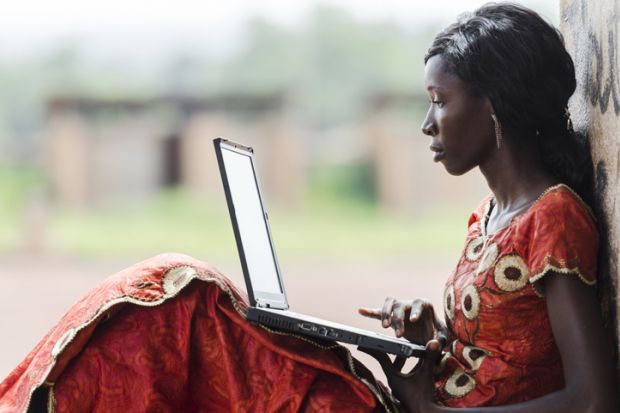International collaboration elevates everything that is vital and valuable about what universities do – and never more so than when the collaboration involves regions that can ordinarily be overlooked.
In forging new cross-border partnerships, sub-Saharan Africa is one region that no country should overlook. Its population of over a billion, 70 per cent of whom are under the age of 30, with the potential to shape their own nations, drive innovation and move the world forward. But they face challenges. While Australia has what seems to be an impossibly high gross tertiary enrolment ratio of 116 per cent, according to the World Bank, the figure for sub-Saharan Africa is impossibly low: just 9.4 per cent.
Such disparities pose a grave threat to global development; when young people are denied the opportunity to access higher education, it’s not just individuals that lose out but global society as a whole.
Launching at the Commonwealth Heads of Government Meeting (CHOGM) in Rwanda this week, a new partnership between the government of Australia and the Association of Commonwealth Universities (ACU) promises to narrow this gap. The Partnership for Enhanced and Blended Learning (PEBL) West Africa aims to use of blended learning to deliver education and training to far more students than would otherwise be possible.
While blended learning has proved invaluable during the Covid-19 pandemic, its design and delivery can nonetheless present challenges, particularly when staff and resources are already stretched. To address this, PEBL will bring universities in Ghana and Nigeria together with international partners such as UNSW Sydney that have particular expertise in open educational resources. Together, they will co-create quality-assured, credit-bearing courses that can be shared and replicated across universities in the region.
PEBL also highlights the importance of strengthening the capacity of west African universities to design and deliver blended learning themselves, beyond the life cycle of a given project. It builds on the remarkable success of PEBL East Africa, led by the ACU and funded by the UK government, which brought 23 universities in the region together with technical partners from the UK and Canada. A total of 11,000 students have already benefited from PEBL’s quality-assured open-source modules, co-created to meet the distinct needs of those universities taking part. Crucially, more than 170 academics have been trained in the design and delivery of blended learning, meaning the programme will continue to yield benefits in the years to come.
The fact that PEBL West Africa is being launched at a major summit of government leaders is not without significance. When the leaders of global governments come together, the focus of conversations on education has often been on school reform, leaving higher education struggling to compete for funding and recognition. But this either/or dynamic overlooks the bigger picture, in which universities are a cornerstone of international development and of the education ecosystem as a whole.
At this year’s CHOGM, the ACU hopes to bring about a lasting shift in this conversation. As official representatives of higher education in the Commonwealth, and on behalf of our global community of 500 member universities, we are making the case for higher education’s pivotal role in meeting all 17 of the UN’s Sustainable Development Goals (SDGs) through life-changing research, skilled graduates and community engagement. Australia’s universities, such as Monash University and the University of Sydney, already have an impressive record of delivering impact for the SDGs, but the clock is ticking.
With just seven years to go until the 2030 target date, higher education’s capacity to deliver on the SDGs hinges on three key factors. First, universities need the funding and resources to realise this potential. Second, opportunities to access higher education must be made available to all those who would benefit. And, third, collaboration between universities and partners around the world must be facilitated; a study published earlier this year by the ACU and the British Council found that international partnerships in higher education are highly effective in driving progress towards the SDGs, as well as delivering added value to donors.
Organisations such as the ACU offer a valuable framework for equitable international partnerships with significant mutual benefits. Nineteen African and eight Asian nations are members of the Commonwealth, including emerging powers such as India, Nigeria and Malaysia. A shared language and parallel educational structures ease the practical problems of working together. Meanwhile, helping to boost partnerships in the Pacific – and overseeing the ACU’s work in Australia, New Zealand and the Pacific islands – is a thriving regional committee, chaired by the vice-chancellor of the Australian National University, Brian Schmidt.
The presence of Australia’s deputy prime minster at the Rwanda meeting this week is an opportunity for the new government to set out its role in supporting international development and collaboration. In this, we hope ministers will look to universities in Australia and beyond for support and inspiration. And we hope they will do all they can to bring to fruition the wealth of opportunities that exist to harness the power of partnerships with universities all across the Commonwealth.
Joanna Newman is CEO and secretary general of the Association of Commonwealth Universities.
Register to continue
Why register?
- Registration is free and only takes a moment
- Once registered, you can read 3 articles a month
- Sign up for our newsletter
Subscribe
Or subscribe for unlimited access to:
- Unlimited access to news, views, insights & reviews
- Digital editions
- Digital access to THE’s university and college rankings analysis
Already registered or a current subscriber? Login








